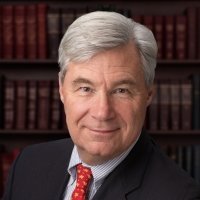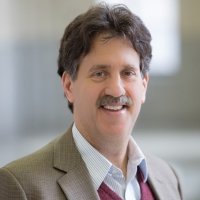USAID and the Private Sector: Blended Finance Partnership to Combat Ocean Plastic Pollution (Launch Event)
The amount of plastic pollution flowing into the ocean is increasing at an alarming rate, creating an urgent challenge for the world’s environment and economy. On our current trajectory, by 2050 — pound for pound — there will be more plastic in the ocean than fish. Most ocean plastic pollution emanates from developing countries — and, more specifically, from rapidly urbanizing coastal cities in the developing world — where waste management systems are struggling to keep pace with growing populations and increasing amounts of trash. The best way to address the flow of plastic into the ocean is to stop it at its source.
In this discussion, representatives from the U.S. government, private sector, and NGO community proposed innovative solutions and blended finance to tackle this critical issue.
Selected Quotes
Emily Woglom
“We now understand that plastic is nearly ubiquitous in the ocean. It is in the deepest Marianas Trench. It is in the Arctic Sea ice. It’s also impacting the animals. It is in the stomachs of the largest blue whales, and micro plastics are in the smallest plankton. So it’s really across the entire scale.”
“There’s a tremendous economic impact to marine debris. There was a 2009 study from the Asia-Pacific Economic Cooperation that showed in the previous year, the economic impact of marine debris totaled 1.3 billion dollars, from impacts to tourism to costs of cleaning things up…So this is important not just from a wildlife standpoint, but also from an economic standpoint.”
“The magnitude of this problem is so enormous that we sort of have to do everything – we have to reduce, we have to redesign things, we have to create demand for recycled content, we have to put basic infrastructure for collection in place…So how do you balance that with the sense that you have to start somewhere and you have to start with a particular focus?”
Rob Kaplan
“What we need to do is help those institutional investors understand that allocating capital to waste and recycling is critical to their opportunities as well, and can meet their requirements. The partnership that we’re here to talk about today – and blended finance – is a way to accelerate and catalyze that kind of investment.”
“There’s been a lot of great research that found that by investing in integrated waste management in these high leakage markets, we can make a big dent in the amount of plastic that’s flowing into the environment and ultimately the ocean.”
Carrie Thompson
“We need to continue to work with the private sector for so many reasons on topics like this. Beyond the finance it can bring, the private sector is involved in all stages of waste management from generation [and] collection [to] processing. And so they are a key stakeholder to this conversation.”
“We know that private sector – and many of the groups that are here today – are a major source of innovation and expertise in emerging technologies. This is a really exciting moment to see [that] corporations are taking a look at material science, the different packaging materials, and how we might evolve them. So we are looking to engage that expertise. And we think we bring something as well as government.”
Haley Lowry
“Advancing our principles on the circular economy is something that is absolutely critical to our company – from designing materials that allow packaging to be more recyclable to creating new business models to new collection systems or schemes that may need to be come up with.”
“This is not something that any one of us can do alone. It’s not something that the private sector can do alone either. It will take policy. It will take government support. It will take NGO involvement, and true understanding and localized solutions.
Steve Sikra
“When we work together, particularly pre-competitively across the entire value chain, we can bring the full resources of all of our institutions together and really bring this solution to the forefront.”
“We know consumers want to recycle, but they look to us to, number one, use less plastic. So we have commitments to do that. And, in fact, by 2030, we’ve committed to reduce our virgin plastic petroleum by 50 percent. And we know that reduction is a critical component to this effort to eliminate plastic waste in the environment.”
“As we embark on these journeys, the discussion on plastics in the ocean, and plastic in the environment, has certainly come to the forefront more so. We’ve made a goal, and that goal is by 2030 we want to identify solutions so that no P&G plastic enters the ocean. We think it’s important that you stop the flow into the ocean such that we can really get a handle on the problem.”
“We think the solutions are multiple. Number one, start with reduce. Number two, build out your infrastructure [and] make sure that you can stop the flow going in. And, most importantly, ensure there’s a demand pull, a use for the material once it’s collected. And let me just close by saying that no one company can do this alone.”
Senator Sheldon Whitehouse
"Indeed, the oceans are screaming. And for those of us who will listen, the signs are really incredibly dire – from ocean acidification to ocean warming to pollution to overfishing and, of course, to the proliferation of ocean plastic.”
“There’s a lot of possibility here. We have other bills coming out through the Senate bipartisan oceans caucus… We are churning through increasingly important oceans legislation in the Senate, not just in a bipartisan way – in a unanimous way. So load us up, put us to work, and let’s get this solved.”
This event is supported by the U.S. Agency for International Development, Circulate Capital, and Ocean Conservancy.
Opening Remarks
Chris Milligan, Counselor, U.S. Agency for International Development
Panelists
Rob Kaplan, Founder and CEO, Circulate Capital
Haley Lowry, Global Sustainability and End Use Marketing Director, Dow
Steve Sikra, Associate Director, Research & Development, Global Product Stewardship, Procter & Gamble
Carrie Thompson, Acting Assistant Administrator, Bureau for Economic Growth, Education and Environment, U.S. Agency for International Development
Emily Woglom, Executive Vice President, Ocean Conservancy
Moderated by Ambassador David Balton, Senior Fellow, Wilson Center; Former Deputy Assistant Secretary for Oceans and Fisheries, U.S. Department of State
Closing Remarks
The Honorable Sheldon Whitehouse, U.S. Senator (D-RI)
Speakers

Introduction

Moderator

Hosted By

Environmental Change and Security Program
The Environmental Change and Security Program (ECSP) explores the connections between environmental change, health, and population dynamics and their links to conflict, human insecurity, and foreign policy. Read more


Indo-Pacific Program
The Indo-Pacific Program promotes policy debate and intellectual discussions on US interests in the Asia-Pacific as well as political, economic, security, and social issues relating to the world’s most populous and economically dynamic region. Read more


China Environment Forum
China’s global footprint isn’t just an economic one, it’s an environmental one. From BRI investments in Africa and Asia to its growing presence in Latin America, understanding China’s motivations, who stands to gain - and who stands to lose - is critical to informing smart US foreign policy. Read more


Science and Technology Innovation Program
The Science and Technology Innovation Program (STIP) serves as the bridge between technologists, policymakers, industry, and global stakeholders. Read more
